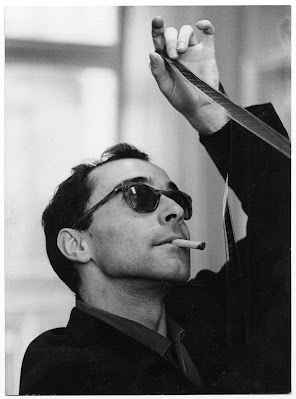Directed by Laure de Clermont-Tonnerre
Available to stream now on Netflix
The final book by D.H. Lawrence published in his lifetime was "Lady Chatterley's Lover" and the English writer was well aware that this work would be met with indignation and outrage. First published discretely in Italy and France in 1929, this story about an upper class married lady having an affair with her working class employee created a scandal over it's use of language, considered too explicit at the time, involving sexual situations. Several censored versions of the book appeared in his native country before the complete novel was published in 1960 (thirty years after Lawrence's death), setting off an obscenity trial with an eventual verdict of "not guilty".
"Lady Chatterley's Lover" would be banned in many other countries including (not surprisingly) the United States which would have it's own trial over the censoring of the book and banning of a 1955 French film version where the US Supreme Court would rule these acts violated First Amendment protections in 1959. "Lady Chatterley's Lover" is now viewed as a starting point of forcing an open discussion on sexuality and creative expression, leading to overturning other obscenity laws and the emergence of the sexual revolution not long after that trial in this country.
There have been many movie adaptations of Lawrence's novel made over the years following that first banned French film, later made in some of those same countries that had outlawed the original book. The latest is from French filmmaker, Laure de Clermont-Tonnerre with an exquisitely rendered English-language version featuring Emma Corrin, known for their effective turn as Diana, Princess of Wales in the fourth season of "The Crown", as Lady Chatterley. Determined, gutsy and comfortably sensual, this is a Chatterley for our times. But despite this update, she remains a woman living in the early twentieth century, trying valiantly to push back against the harsh gender restraints of the day yet also well aware of the societal limitations of pushing for change.
Oliver Mellors (Jack O'Connell) is hired as the gamekeeper, winning over a reluctant Clifford after revealing he had also served in the war. Reserved and brooding, Mellors keeps to himself until Constance shows up at the cottage to see some newborn chicks. There is an instant attraction, each trying to resist the pull while freely enjoying the flirtations. Their initial sexual encounter begins as a explosion of pure lust before evolving into a passionate love affair.
There is a delightful playfulness between Corrin and O'Connell, with the actors displaying an ease and comfort as their characters expose to each other their secret desires, both physically and emotionally. The alluring camerawork by Benoît Delhomme captures the intense struggle Constance faces from the chilly, stifling upper class home she shares with her husband to the warm, sensual environment of the wooded cottage where she can escape into the arms of her gamekeeper. And de Clermont-Tonnerre has also generated some actual erotic heat in the film, something that has been long missing from adult dramas of late that doesn't feel overly stylized or exploitive.
This "Lady Chatterley" feels invigorated with inventive revisions of story and characters. With the assistance of David Magee's engaging screenplay, the filmmaker has managed to capture a modern sensibility without causing distraction, keeping the story firmly rooted in the past with one notable yet plausible update to the plot. Since he still wants a heir and knowing no one would question if he was still capable, Clifford suggests that his wife discreetly find a suitable gentleman to impregnate her. An appalled Catherine is shocked by his request, resisting this outrageous idea. But as her husband, now a successful author, surrounds himself with stuffy intellectuals which reveals his closed-minded worldview, Constance becomes more open to meeting someone who could possibly stimulate her mind, body and spirit.
With "Lady Chatterley's Lover", Lawrence wanted to explore the complications of love relationships and challenge the ideas of class in British society. And this film reveals that the battle involving the divide between the social classes has only continued to rage on almost one hundred years after the book's publication. One just has to look at the recent public hostility and resentment towards the marriage of Prince Harry and Meghan Markle although there are other unreasonable factors involved in the discourse. This film reveals how antiquated the idea of putting such importance on class status to indicate a proper romantic match. Relationships are hard but finding true love is even harder.
.png)




.jpg)
.jpg)















